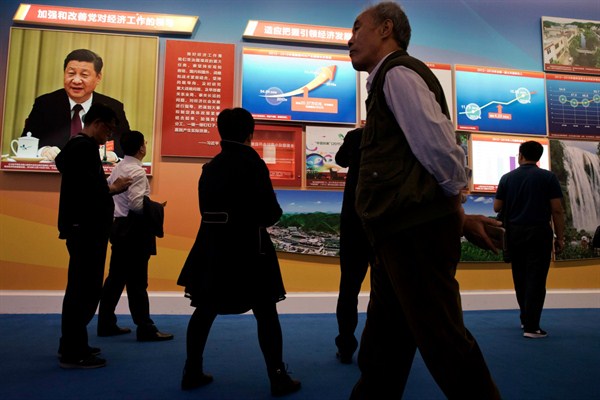Little is expected from the World Trade Organization’s 11th ministerial conference next week in Argentina. U.S. President Donald Trump’s hostility to multilateral agreements is a serious impediment, and American trade officials engaged in preliminary talks in Geneva have said they do not expect, nor want, any negotiated agreements to come out of the meeting in Buenos Aires. This is despite the fact that several items on the WTO’s agenda, including e-commerce, constraints on trade-distorting agricultural policies and constraints on fishing subsidies, have been U.S. priorities in the past.
By contrast, China has signaled throughout this year that it supports open global markets and a strong multilateral trade system. In a speech at the World Economic Forum in Davos a few days before Trump’s inauguration, Chinese President Xi Jinping defended globalization. He recognized the need to address the downsides of globalization, but warned of the dangers of protectionism. In March, Chinese Vice Premier Zhang Gaoli reiterated Beijing’s commitment to free trade and specifically called for strengthening the WTO. Xi echoed the warnings about protectionism in his address to the Asia-Pacific Economic Cooperation summit in Vietnam last month, where he took the stage just after Trump had railed against “unfair” trade and singled out the WTO in a blistering and starkly different speech. Could China help to fill the void left by the United States vacating its traditional leadership role in global trade?
The WTO operates on consensus, so no formal agreement is possible in Buenos Aires without American acquiescence. Nevertheless, China could clearly signal that it puts a priority on keeping the WTO strong and that it is willing to pay a price to that end. China could announce that, going forward, it will forgo the special and differential treatment for which developing country members are eligible. Although still classified by the World Bank as a “middle-income country,” China could declare itself a “developed country” for the purposes of WTO negotiations. Under WTO rules, there is no set definition of “developed” or “developing.” Rather, member countries determine for themselves whether, and in which areas, they wish to avail themselves of special treatment as a developing country. For example, South Korea, despite having a per capita income of $28,000, clung to its developing country status under the WTO’s 1995 Agreement on Agriculture, so it could maximize its flexibility in protecting rice and other sensitive commodities.

